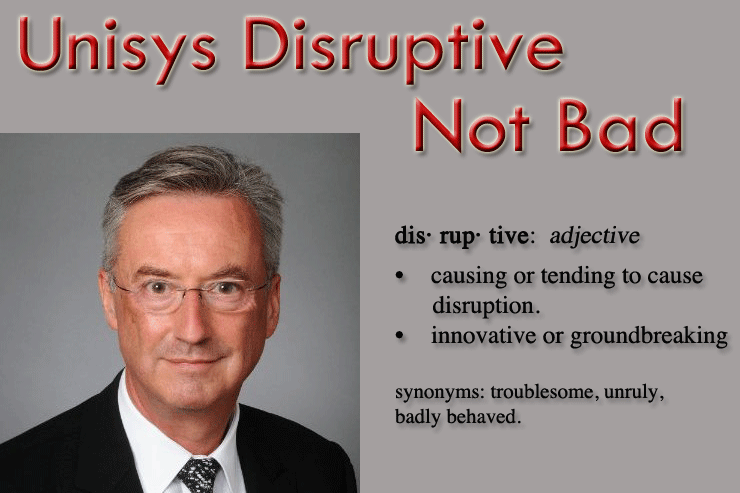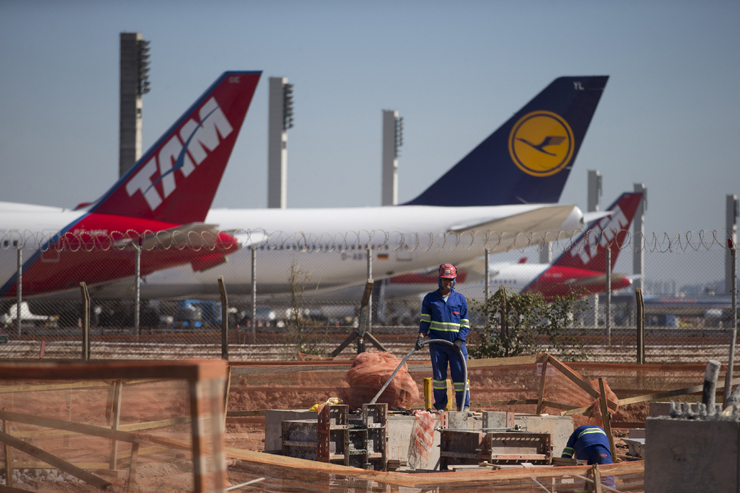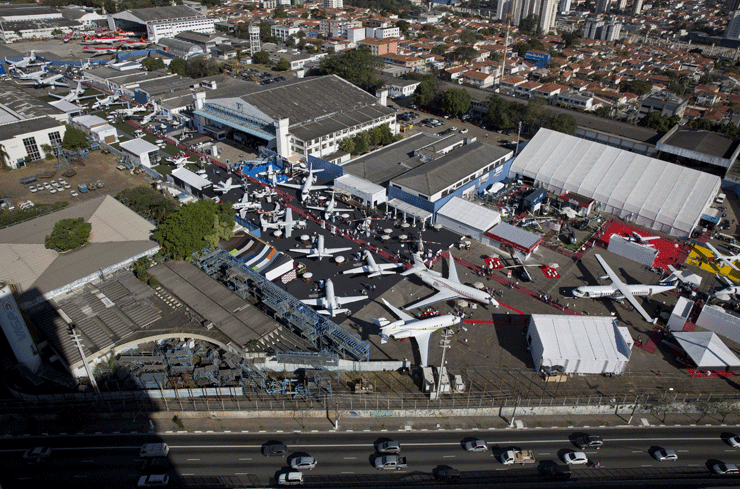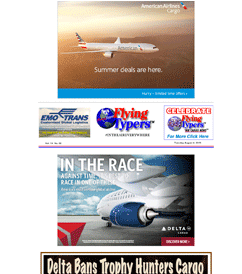| 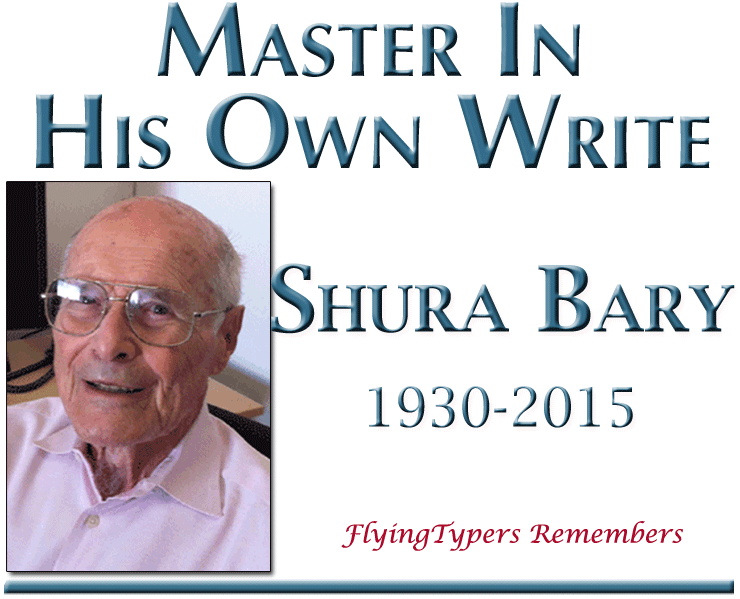
Shura Bary, 85,
died last Thursday, August 6, of complications of Type 1 diabetes.
His funeral service was held on Sunday at Sinai Temple in San Francisco.
He is survived by his wife, Ann, two
sons, Andrew and Brian, and four granddaughters.
Andrew is deputy editor of Barron’s
and Andrew's daughter, post-graduation, has just started work as a
journalist for Barron’s. Journalism is in the Bary blood!
Shura’s parents immigrated to
America after WWI. He was born in Brooklyn, New York, and graduated
from New York University (NYU). Shura began his work life as a journalist
writing about Broadway. From there he joined the public relations
division of a large advertising company in New York.
His first client was Emery Air Freight,
then Airborne Airfreight, which marked the beginnings of his love
affair with air cargo.
He moved to San Francisco and set up
The Bary Group in the 1970s. As the Principal of The Bary Group, he
looked after (amongst others) Burlington Northern Airfreight (founded
by Larry Rodberg, whom he knew from Airborne), Profit Freight Systems,
Consolidators International Inc., Circle, Rightoway, Target Airfreight,
Geo Logistics, DGX, and Express Air Unlimited.
Interestingly, to “balance”
his client list, he served for years as publicist for a San Francisco-based
bank and a Los Angeles toy company.
Shura was a very cultured man.
He loved classical music and Broadway
musicals.
He was a voracious reader, from fiction
novels to books on modern history.
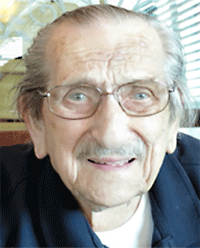 Richard
Malkin, who knew Shura from the begninning said, "my professional
relationship with Shura Bary goes back decades to his early years
in New York as a P.R. writer. I edited Air Transportation Magazine
at that time, and I accepted one of his first articles on a nonsked
cargo carrier. Over the years, Shura developed into a fine reporter
on air cargo topics. The output for his cargo clients was qualitatively
impressive. Air cargo journalism has lost a man of distinction." Richard
Malkin, who knew Shura from the begninning said, "my professional
relationship with Shura Bary goes back decades to his early years
in New York as a P.R. writer. I edited Air Transportation Magazine
at that time, and I accepted one of his first articles on a nonsked
cargo carrier. Over the years, Shura developed into a fine reporter
on air cargo topics. The output for his cargo clients was qualitatively
impressive. Air cargo journalism has lost a man of distinction."
Shura was a sponge for anything airfreight
and that is why, until his death, he was such a contemporary writer.
The industry will be poorer for loss of his musings, which were always
ghost written and credited to others. He was the best, most professional,
and dearest character to ever flack air cargo, and he did it almost
forever for Julian Keeling, CEO of COnsolidators International in
Los Angeles.
Here, Julian delivers a thoughtful
and very personal remembrance of dear Shura.
Geoffrey Arend
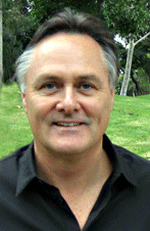
Walking
With Shura
For twenty-seven years I was a close
friend to Shura. I came to Los Angeles in late 1988 from Australia.
A mutual friend suggested I contact Shura because we were establishing
operations in America and I felt we needed the help of a publicist
to promote our new venture.
One of the first phone calls I made
after settling in was to Shura. A week later he arrived at my office
at 10:55 for his 11.00 AM appointment. I wasn’t in. The day
before I had made a 9.30 appointment with a prospective customer which
I thought was fifteen minutes away, just down the 405 freeway. Being
new to L.A., I was unaware that ten miles, as far as the 405 was concerned,
could take well over half an hour.
Feeling very frazzled I walked through
the door fifteen minutes late. My sales call was successful but the
first five minutes of my initial meeting with Shura was not! After
a shaky start, thankfully Shura warmed to me. I think my raw “down
under” charm and enthusiasm helped me. By the end of that meeting,
he had given me the complete benefit of the doubt. That is when and
where our extraordinary friendship began, yes, some twenty-seven years
ago.
It didn’t take long for us to
determine we actually shared much in common, even though he was a
New Yorker and I was a Kiwi; current events, politics, airfreight,
but most of all, love of family. Very early into our long friendship,
I realized he also was so caring. His first greeting words always
were, “And how are you, Julian?” They were uttered because
he truly wanted to know.
He was such a classy man. As my ghost
writer, if a story was published, he would fax me a copy with something
handwritten on it to say, “Your article was well received!”
crediting me as the actual author. He loved the airfreight business
and had accumulated an encyclopedic knowledge of the industry. I would
venture to say that of the topics “we” wrote on, a full
90 percent were his brainwaves. He was the most contemporary man I
have ever met. Many a time “we” would make predictions
and yes, “our crystal ball prognoses” ended up on the
money.
Funnily enough, he handled the publicity
for a San Francisco Bank and a Los Angles toy company for many years,
and I bet he was just as knowledgeable on those subjects—money
and toys—as he was on airfreight.
Shura was a renaissance man. Although
a well-read man who loved history (he always looked forward and never
back), I loved him for possessing old-fashioned values in the areas
that really mattered: wife, family, maintaining contact with old friends,
and life itself. When he did dip into the past, I enjoyed listening
to his stories. They were always so uplifting.
Thankfully, we shared the same politics,
because he was a man who truly wanted the world, especially all Americans,
to receive a “fair shake.” He felt America and the “New
Deal” after the great depression gave him the opportunity to
excel and flourish. He claimed that had he been brought up in his
parents’ homeland that might not have been the case.
He was a true patriot. He was always
grateful to his parents for sacrificing so much so he could succeed.
Throughout his life, he remained grounded.
His early advice to me in that area was, “Never believe in your
own publicity.” To this day I never have.
Yes, being a “product” of
the depression, like many of his generation, Shura was quite frugal
when it came to himself. However the real fact was he was truly big
hearted. He planned to make sure with his passing Ann was well protected.
Coupled with that was the duty he felt to his sons, who were his pride
and joy, to ensure his legacy would live on with their families and
they would remain secure.
Shura very quickly became my mentor.
He never realized it but over many years he gave me very sound advice
on business, although he claimed he knew nothing about the subject.
He possessed all the qualities that go into making a true gentleman.
Shura was honest to a fault, humble, respectful, a good listener (but
in saying that, he didn’t suffer fools gladly), loyal, hard-working,
full of common sense, and a man who loved life. That is the
character of the man.
As a journalist, Shura’s skills
were such that had he decided to become a doctor or an engineer, he
would have also excelled. The career path Shura chose, the fourth
estate, unfortunately is not a high paying profession and is one that
rarely publicly recognizes its own. I may appear biased when I say
Shura was the best amongst his peers. But that is an unequivocal fact.
Being a man of independent spirit, Shura
decided to go out on his own when he started his new life with Ann
in San Francisco. He started business with one client, Burlington
Northern Airfreight. He is remembered in the industry for the first
brochure Burlington ever produced. Shura organized the Los Angeles
staff to position themselves on a map of the United States, all waving
into the photographer’s lens, camera atop a crane. Shura’s
caption for the brochure was, “People, not planes deliver.”
That slogan appeared on every advertisement and brochure for over
30 years.
Very few scribes succeed to enjoy the
material fruits of life, because writers by nature are spiritual;
making money is secondary. Shura succeeded at both. Why? Beneath this
humble Brooklyn-born and bred guy, lay a very smart, determined man
and a canny investor to boot. Shura always carefully chose his stocks,
accumulated them, and never sold.
Shura also had a wry sense of humor
and often had me in fits of laughter. Unfortunately, unlike Shura,
I am not a good teller of jokes simply because I was not blessed with
that talent. When I started to bring my little dog to the office,
his favorite quip as he entered was, “Any man who hates babies
and dogs can’t all be bad!” A quote from W.C. Fields.
At the height of the dotcom boom fifteen-odd
years ago, Andrew was speaking to his father about the difficulty
of writing about stocks attached to the dotcom craze, because he felt
the hype of most of these companies was not in sync with the fundamentals.
Shura suggested he knew of two related dotcom companies that were
already the greatest beneficiaries of e-commerce that would make an
incredible story. Andrew politely asked him to name them. Shura responded
“FedEx and UPS.”
At the time, FedEx was still mired in
huge debt building up its fleet of aircraft, trucks, and ground handling
equipment. It had never declared a dividend. It certainly was no darling
of Wall Street. Andrew’s article was widely regarded as one
of the best ever written on FedEx and the Internet boom.
E-commerce is responsible for where
both FedEx and UPS are today. Shura was a man of vision and this is
but one example. George Bernard Shaw wrote, “You see things
and you say why? But I dream things that never were and say why not?”
That is Shura to me.
Thank goodness Shura retained his sense
of irreverence and never succumbed to political correctness. Tell
it as it is. With that said, Shura was actually a very sensitive man.
Over this last year, as Shura became
more incapacitated, our chats became fewer and farther between. My
dad died from the complications of diabetes and I knew Shura was suffering
the same as my dad did over his last few years. When a man retains
an acute and youthful mind but his body slows down, life becomes very
frustrating. I stand here most saddened by his passing, but blessed
that he was such a big a part of my life for nearly thirty years.
Grief is the price we pay for love.
Julian Keeling |



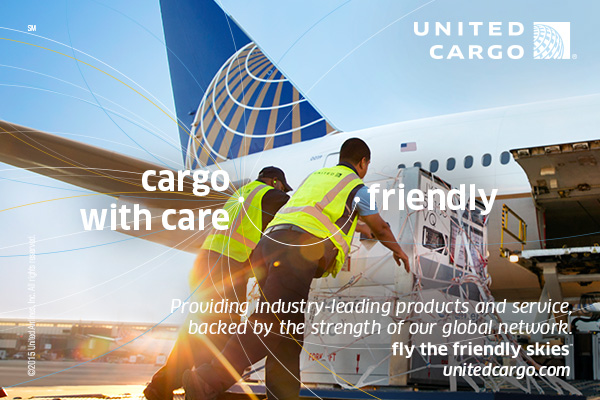

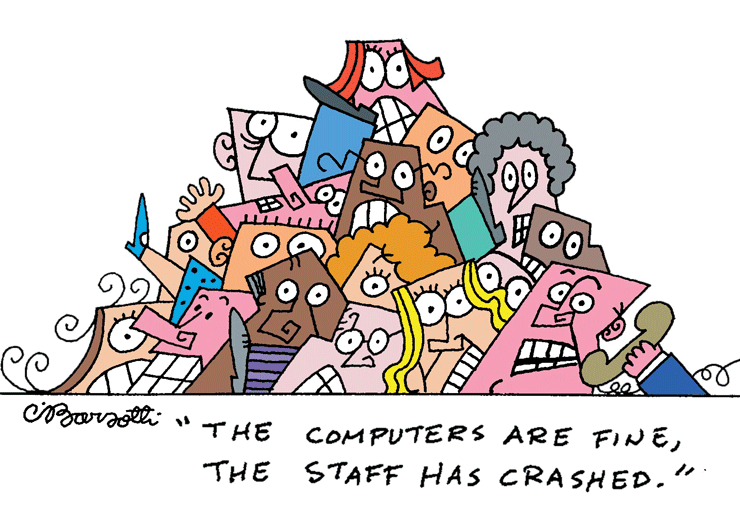


 Richard
Malkin, who knew Shura from the begninning said, "my professional
relationship with Shura Bary goes back decades to his early years
in New York as a P.R. writer. I edited Air Transportation Magazine
at that time, and I accepted one of his first articles on a nonsked
cargo carrier. Over the years, Shura developed into a fine reporter
on air cargo topics. The output for his cargo clients was qualitatively
impressive. Air cargo journalism has lost a man of distinction."
Richard
Malkin, who knew Shura from the begninning said, "my professional
relationship with Shura Bary goes back decades to his early years
in New York as a P.R. writer. I edited Air Transportation Magazine
at that time, and I accepted one of his first articles on a nonsked
cargo carrier. Over the years, Shura developed into a fine reporter
on air cargo topics. The output for his cargo clients was qualitatively
impressive. Air cargo journalism has lost a man of distinction."
